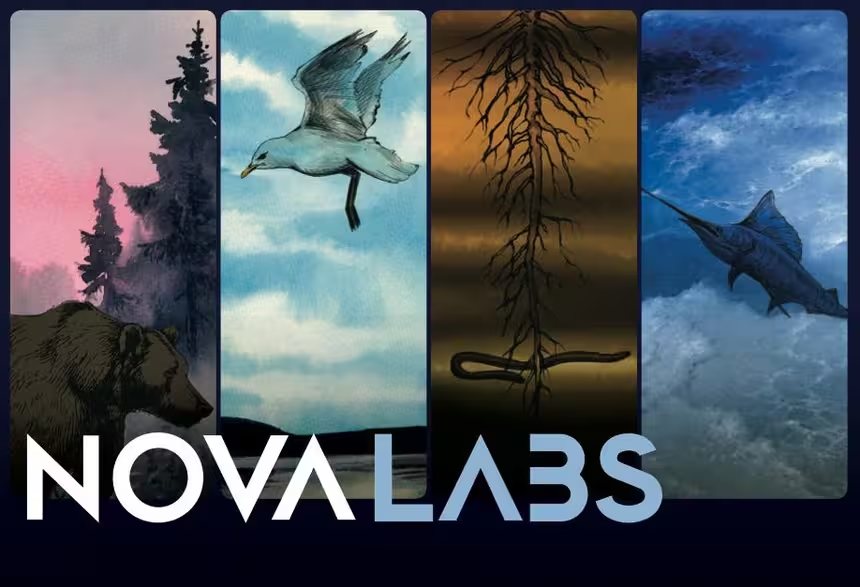
Why Just Planting Trees Won’t Save the Planet
Clip: Season 52 Episode 8 | 3m 4sVideo has Closed Captions
Could restoring lost forests help slow climate change?
A paper published in 2019, estimated that there is enough land on Earth to support an extra trillion trees to capture carbon. But in the rush to grow trees, people ignored the supporting environment that exists in a forest. Discover why biodiversity matters in forests.
Problems playing video? | Closed Captioning Feedback
Problems playing video? | Closed Captioning Feedback
National Corporate funding for NOVA is provided by Carlisle Companies and Viking Cruises. Major funding for NOVA is provided by the NOVA Science Trust and PBS viewers.

Why Just Planting Trees Won’t Save the Planet
Clip: Season 52 Episode 8 | 3m 4sVideo has Closed Captions
A paper published in 2019, estimated that there is enough land on Earth to support an extra trillion trees to capture carbon. But in the rush to grow trees, people ignored the supporting environment that exists in a forest. Discover why biodiversity matters in forests.
Problems playing video? | Closed Captioning Feedback
How to Watch NOVA
NOVA is available to stream on pbs.org and the free PBS App, available on iPhone, Apple TV, Android TV, Android smartphones, Amazon Fire TV, Amazon Fire Tablet, Roku, Samsung Smart TV, and Vizio.
Buy Now

NOVA Labs
NOVA Labs is a free digital platform that engages teens and lifelong learners in games and interactives that foster authentic scientific exploration. Participants take part in real-world investigations by visualizing, analyzing, and playing with the same data that scientists use.Providing Support for PBS.org
Learn Moreabout PBS online sponsorship- [Narrator] Could restoring lost forests absorb enough carbon to help slow climate change?
To find out, Tom and a team built a computer model to estimate the potential.
- So we collect data from all over the planet, and that can show us there's about 0.9 billion hectares of land outside of urban and agricultural land where forests might naturally be able to regenerate.
That's a big chunk of land that would be able to capture a staggering amount of carbon.
- [Narrator] Calculation suggested that to capture this carbon, there was enough land to support an extra trillion trees, a seductive idea that made headlines around the world.
- It just went viral beyond anything I could have been prepared for.
And I think that alliteration, trillion trees, was both a blessing and a curse.
In one way, it captured everyone's imagination.
"Great, we bring back a trillion trees and we're gonna be flying."
But the downside was everybody thought that meant planting trees.
Somehow it wasn't about the forest, it was about the trees, and that is where things started to go wrong.
It nearly finished all of our careers.
Companies and governments were under a lot of pressure to limit their emissions.
They saw this as a chance to just bang a load of trees in the ground, and then they don't need to cut emissions.
The projects denounced as a result of our paper saying, "Don't worry, we're gonna buy up land and we're gonna plant trees."
- In the rush to grow trees, people ignored the supporting environment that exists in a forest.
- There are places on the planet where biodiversity continues to thrive, and those places are by and large in indigenous homelands.
Biodiversity is the sum total of all of the organisms that are here, and you think, well, why does it matter?
In a forest which is self generating, you get all the different forms of trees and the understory and the mosses and the fungi and the birds all in relationship.
It's this beautiful web that doesn't really exist in a monocultural plantation.
- When Tom's paper was published, many quite literally couldn't see the forest for the trees.
By planting rows of single tree species to capture carbon instead of reducing carbon emissions.
- This greenwashing is one of the most insidious threats to climate change and biodiversity.
And through this paper, in some people's minds, I become synonymous with greenwashing.
I still regret how I handled that paper.
It's the hardest thing to be hated by people that you agree with.
Video has Closed Captions
Preview: S52 Ep8 | 30s | Follow scientists in a quest to understand how complex forest ecosystems can help cool our planet. (30s)
Providing Support for PBS.org
Learn Moreabout PBS online sponsorship
- Science and Nature

Capturing the splendor of the natural world, from the African plains to the Antarctic ice.













Support for PBS provided by:
National Corporate funding for NOVA is provided by Carlisle Companies and Viking Cruises. Major funding for NOVA is provided by the NOVA Science Trust and PBS viewers.



